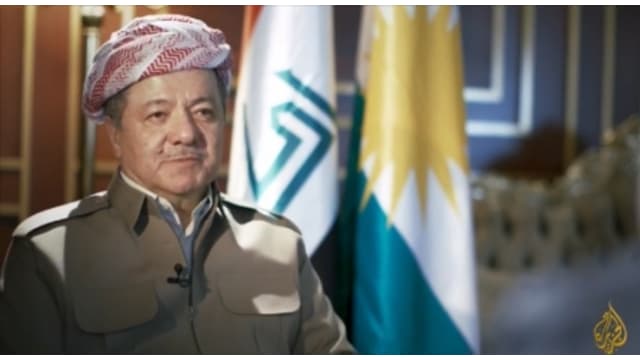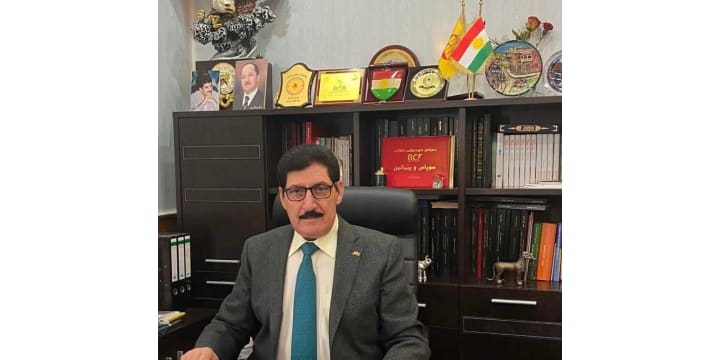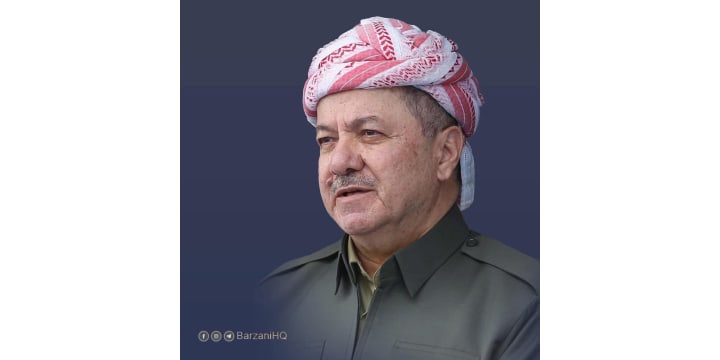
President Masoud barzani's interview with AlJazeera. A Year on Since Referendum: Barzani Reveals US Envoys’ Position
AJ: Was the referendum on 25 September 2017 a mistake?
Barzani: Some people may think so, but I and 3 million other people in Kurdistan believe that it was a landmark, legal and constitutional decision, and it was a natural right of the people of Kurdistan. I am willing to hold another referendum now, asking whether or not the people regret what they voted for during the 25 September referendum.
AJ: The Iraqi Constitution which was written in 2003, what is your opinion about it?
Barzani: In 2003 we were not well experienced in such issues, like writing a constitution. There were main issues that remained unaddressed… However, in comparison with the previous constitutions [of Iraq], we thought of it as a great achievement.
AJ: Why the referendum, which the constitution planned, has never been held?
Barzani: Ask Baghdad.
AJ: In your opinion, why it was not held while the constitution says it must have been done by 2007?
BarzanI: Excuse me for skipping this question.
AJ: Some people are saying that Barzani decided on the referendum with a Kurdish nationalist spirit, not a political insight.
Barzani: That is not true. We were asking for alternatives if not the referendum. I don’t regret what I did. I will be proven right in the future when the people of Kurdistan will finally obtain their rights.
AJ: Did Israel directly support the referendum? We saw Israeli flags flying in some places [in the Kurdistan Region].
Barzani: There was no coordination. And raising the Israeli flag were individual moves that could be interpreted as reactions.
AJ: It’s said that Baghdad and the international community were continuing a call for postponing the referendum even 24 hours before it?
Barzani: Baghdad exploited the position of the international community on the issue. There was an initial understanding before that as I was meeting with their leaders. One of the leaders, whose name I don’t want to reveal, said they didn’t want war, and I ensured them that I was totally against violence.
AJ: So why couldn’t you bring Turkey to an agreement?
Barzani: We were not asking for permission, will not do it in the future either. That was a decision by the people of Kurdistan.
AJ: Don’t you think that your decision could encourage Kurds in other countries to demand self-determination?
Barzani: Kurds are different from Persians, Turks, and Arabs. They are created like this by God. Kurds in Iran and Turkey will decide on their fate by themselves.
AJ: Is that true that Qasem Suleimani asked for a meeting with you days before the referendum, and you rejected the meeting?
Barzani: No, I received him.
AJ: And what did he offer?
Barzani: He was also asking for a postponement to the referendum. I responded that we would not put it off.
AJ: What about the US administration?
Barzani: To be honest, the US never said they support the referendum, they never said they are against it either. After the new administration was formed, those [US officials] who were responsible for the case of the referendum, were rather sided with the Iraqis. I mean the US ambassador and secretary of state [Tillerson]. He told me during a phone conversation to retreat to the 2003 borders. I asked if he knows what the 2003 border means. The border line was drawn between the Peshmerga and Saddam Hussein’s army; neither these borders nor the borders between the Iraqi provinces are international borders.
AJ: After the referendum, some Kurdish factions retreated as the situation was changing. Why?
Barzani: What happened in Kirkuk was a national treason. A specific group betrayed and made an agreement with Hashd [al-Shaabi] and representatives of the Iranian IRGC. In front of the US, they brought the Iraqi army and Hashd [al-Shaabi] right into Kirkuk, and they backstabbed us.
AJ: Do you think you made a mistake in holding the referendum? Did you step down from you presidency because of that?
Barzani: Not at all. If I believed that I made a mistake, I would beg people’s pardon and would admit that I was wrong. I stepped down because of the law, and because extending the term would have had adverse impacts on my personal history of struggling for the rights of my people.
AJ: Has the idea of splitting from Iraq ended?
Barzani: The situation now is different. Many problems have been resolved, and the rest are being addressed. However, I am keen on the right of my people to self-determination.
[This interview was originally conducted by Al-Jazeera Arabic Service. and published on Basnews website]

